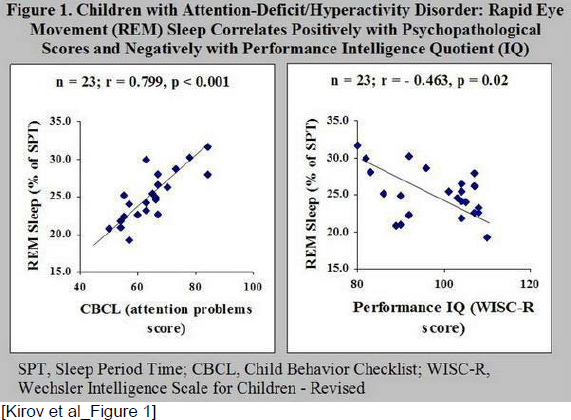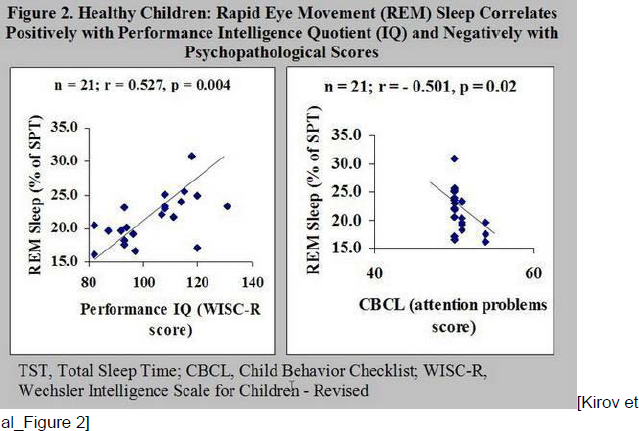Article contents
Two faces of rem sleep in normal and psychopathological development
Published online by Cambridge University Press: 16 April 2020
Abstract
We have previously found an increased rapid eye movement (REM) sleep in children with attention-deficit/hyperactivity disorder (ADHD).
To further investigate sleep characteristics in children with ADHD and their association with cognitive and neurobehavioral functions.
We asked whether and how REM sleep might have been associated with cognitive ability and neurobehavioral functions in children with ADHD compared with healthy children.
Twenty-three children with ADHD and 21 healthy controls underwent a two-night polysomnography and completed a number of standardized tests for cognitive and neurobehavioral functioning.
Compared with controls, ADHD children exhibited a greater amount of REM sleep. In the ADHD group, the increased amount of REM sleep correlated positively with psychopathological scores (inattention) and negatively with performance intelligence quotient (IQ) (Fig. 1).
Fig. 1
[Kirov et al_Figure 1]

In contrast, in the healthy controls, the REM sleep amount correlated positively with performance IQ and negatively with psychopathological scores (inattention) (Fig. 2).
Fig. 2
[Kirov et al_Figure 2]

We conclude that REM sleep may have a bi-directional role in cognition and neurobehavioral functioning during childhood depending on the presence or absence of psychopathology.
- Type
- P01-419
- Information
- European Psychiatry , Volume 26 , Issue S2: Abstracts of the 19th European Congress of Psychiatry , March 2011 , pp. 422 - 423
- Copyright
- Copyright © European Psychiatric Association2011
- 10
- Cited by





Comments
No Comments have been published for this article.